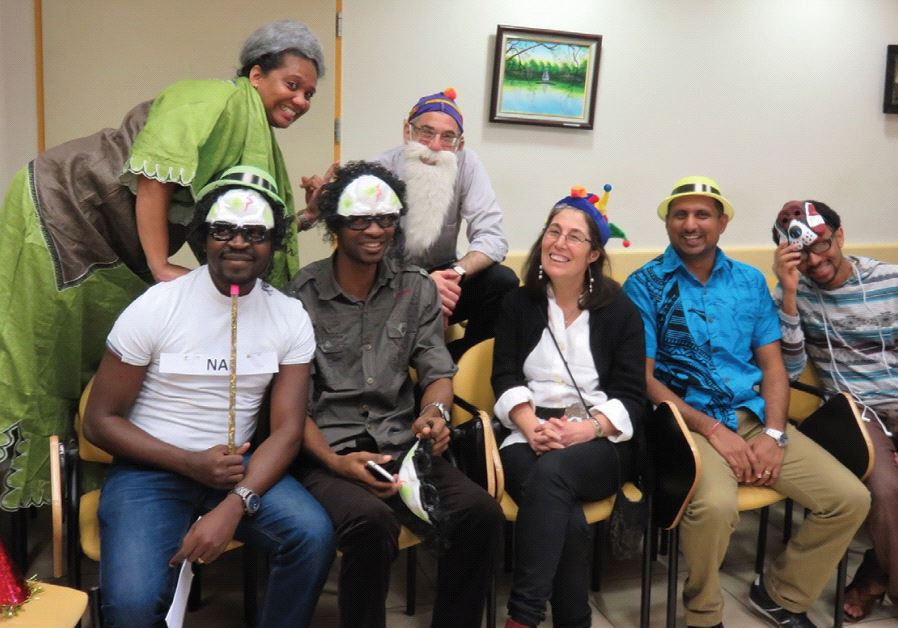Public health tries to move out of the back seat
Prof. Ora Paltiel, director of the HU-Hadassah Braun School for Public Health and Community Medicine, discusses how to push prevention and promotion.
 FOREIGN STUDENTS at the school’s Purim party with Professor Paltiel.(photo credit: JUDY SIEGEL-ITZKOVICH)
FOREIGN STUDENTS at the school’s Purim party with Professor Paltiel.(photo credit: JUDY SIEGEL-ITZKOVICH)